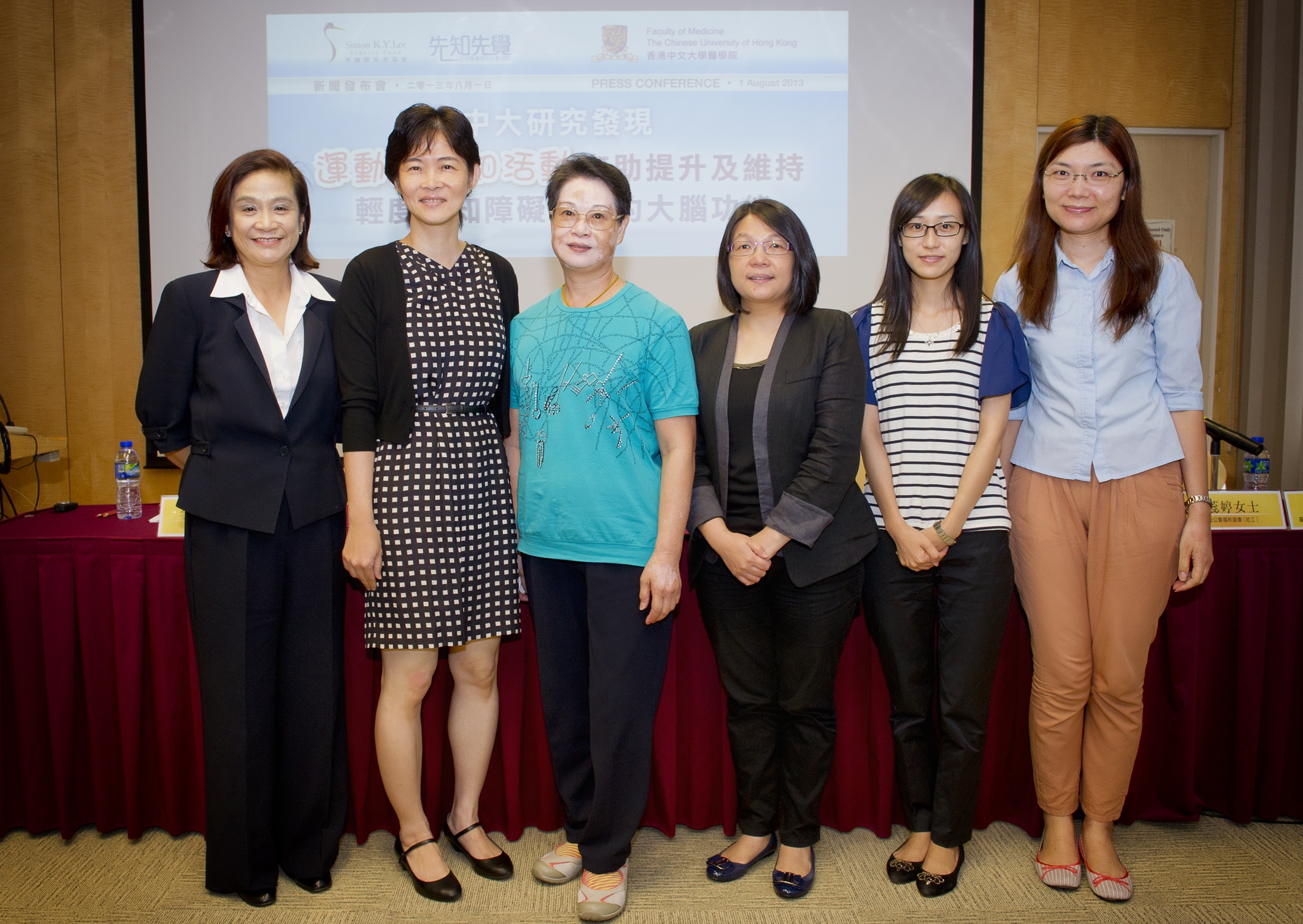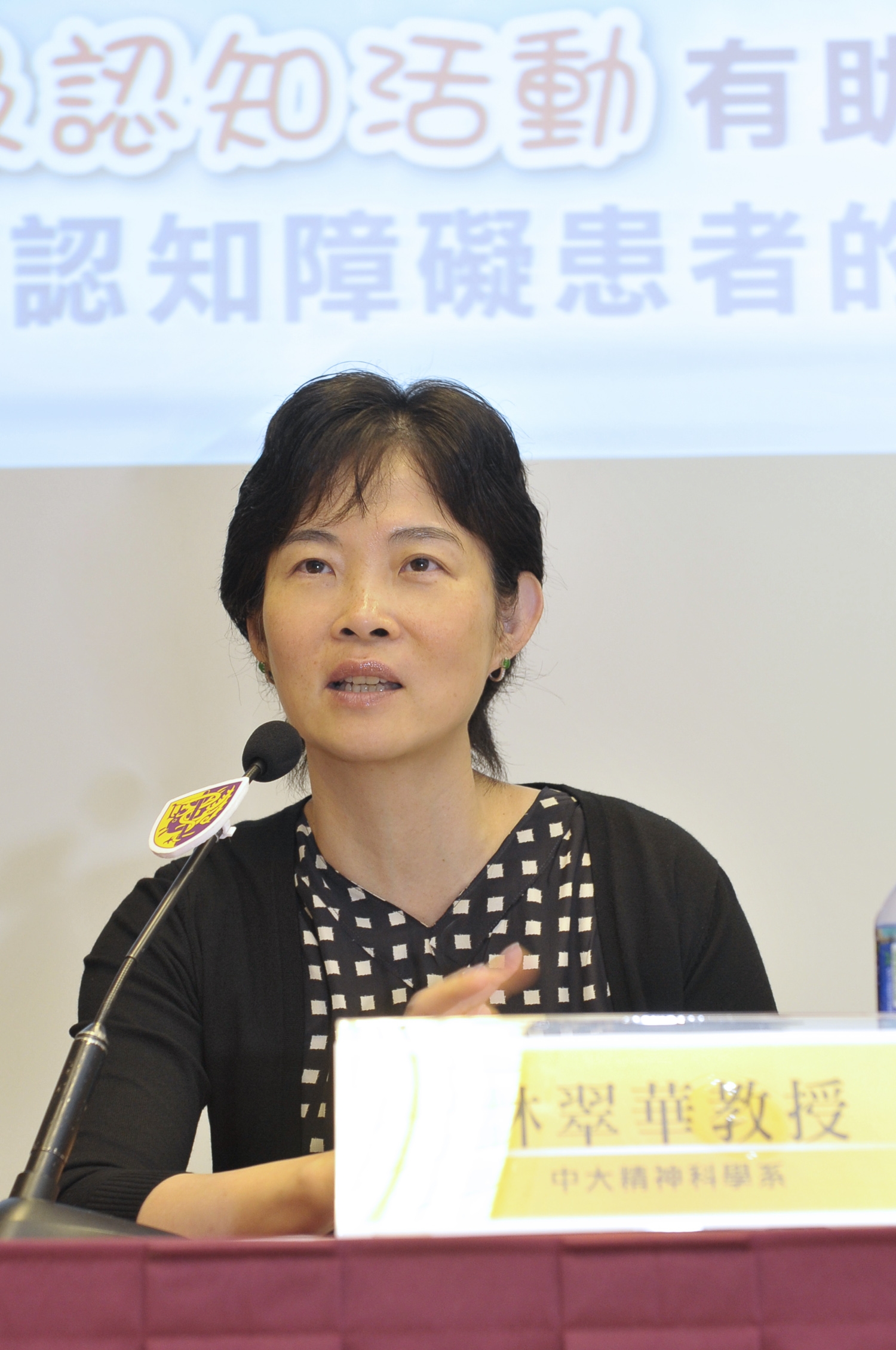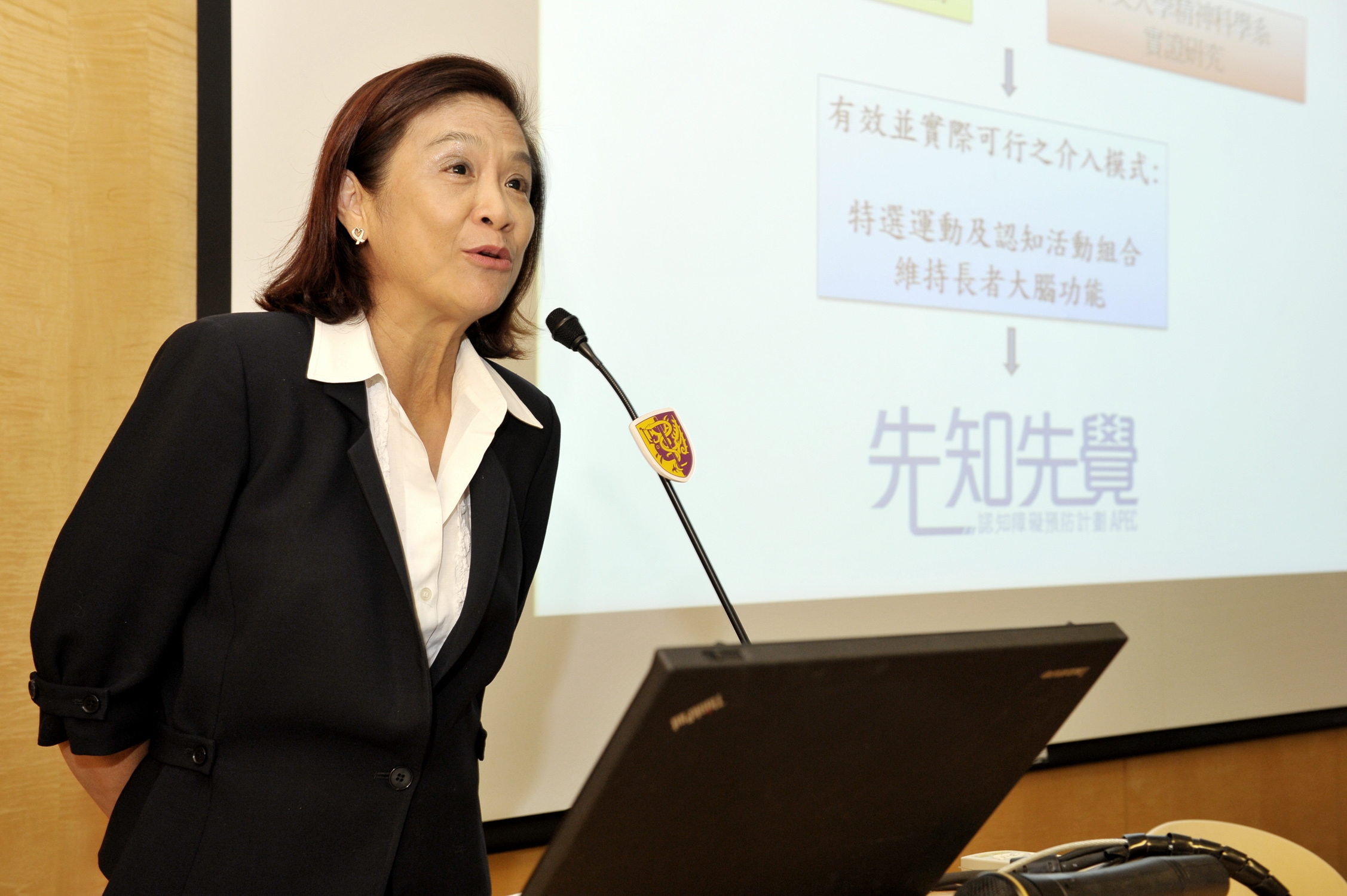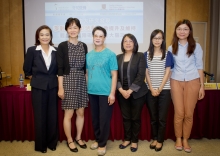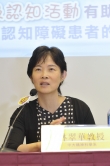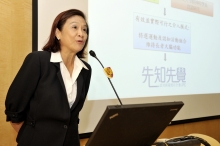CUHK
News Centre
CUHK Research Reveals that Physical and Cognitive Activities can Maintain and Improve Brain Functions of Patients with Mild Cognitive Impairments
A study conducted by the Department of Psychiatry of The Chinese University of Hong Kong (CUHK) reveals that structured physical exercises and cognitive activities may help enhance cognitive functions of the elderly, thereby reducing the risk of cognitive impairment (dementia). The Simon K Y Lee Elderly Fund (the Fund) which commissioned CUHK to conduct the study will launch a programme named ‘Active Prevention & Early Detection of Cognitive Impairment’ for the public and it suggests the Government to promote related activities to the elderly.
It is estimated that over 9% of the population aged 70 or above in Hong Kong suffers cognitive impairment and the number is likely to increase as the population ages. However, there is currently no radical cure for the disease. The Fund thus commissioned the Department of Psychiatry of CUHK to conduct a study from 2011 to 2013 to examine the effectiveness of structured physical and cognitive activities in enhancing brain functions of the elderly. A total of 555 elders (121 male; 434 female; median age 75) with mild cognitive impairments were recruited from three non-governmental organizations (NGOs) to join the study. They were randomly arranged to follow four activity schedules for a year, under the guidance of the elderly centres’ staff. The four activity schedules were:
- Integrated Cognitive-Physical (CP): e.g. tai-chi, eight-brocade exercise, square stepping exercise, drawing, calligraphy, etc. (132 elders)
- Physical (P): e.g. tai-chi, eight-brocade exercise, square stepping exercise, cycling, etc. (147 elders)
- Cognitive (C): e.g. chess, table game, drawing, calligraphy etc.(145 elders)
- Social (S): e.g. group gathering, tea-drinking, horticulture etc. (131 elders)
A total of 423 participants completed the study and were assessed at the 4th month, the 8th month and the 12th month since they started the activities. The results indicated an overall improvement in their cognitive functions and depressive symptoms were alleviated. 56% of the participants showed improvement in cognitive functioning, 37% maintained the same level and only 7% retrograded (4% of which developed into cognitive impairment).
The participants were further categorized into two groups – with ‘mild cognitive impairment’ (325 elders, 59%) and with ‘very mild cognitive impairment’ 230 elders, 41%). In the latter category, those joining the CP schedule showed more obvious improvement in memory and verbal fluency compared to the other three schedules.
Prof. Linda Lam said, ‘In conclusion, structured physical and cognitive activities are effective in helping the elderly to improve their cognitive functions. At earlier stage of impairment, integrated cognitive-physical activities are more effective compared to single-activity approach. Sensory and motor stimulations can help maintain the activity of neuronal networks, while physical exercises can prompt the release of neurotrophic factor. In addition, social activities can help reduce stress and depression.’
In view of the above study results, the Simon K Y Lee Elderly Fund is going to launch the ‘Active Prevention & Early Detection of Cognitive Impairment Project’, offering funding to support NGOs to provide preliminary assessments and structured physical exercises and cognitive activities training for elders. The programme will also promote community education and engage young elders aged 50 to 70 as volunteers. It is expected that 800 elders with mild cognitive impairment will benefit from the programme. Mrs. Mabel Lee, Board Member of the Fund, says, ‘The Fund has been working with the social welfare sector and the academia to promote early detection and early intervention of cognitive impairment since 2008. However, it is impossible to solely rely on private foundations or NGOs to tackle the problem in the long run. The study by CUHK has suggested an evidence-based and feasible intervention, and so we urge the Government to allocate resources to promote it to the community and encourage them to take precautions, reducing the threats cognitive impairment may bring to individuals, families and society.’
(From left) Mrs. Mabel Lee, Board Member, Simon K Y Lee Elderly Fund; Prof. Linda Lam, Chairman, Department of Psychiatry, CUHK Faculty of Medicine; Ms. Hung Yau Mui, the participant; Ms. Joe Wong, District Supervisor (Elderly Service), Baptist Oi Kwan Social Service; and representatives from two NGOs.
Prof. Linda Lam introduces how structured physical and cognitive activities can help enhance cognitive functions of the elderly.


